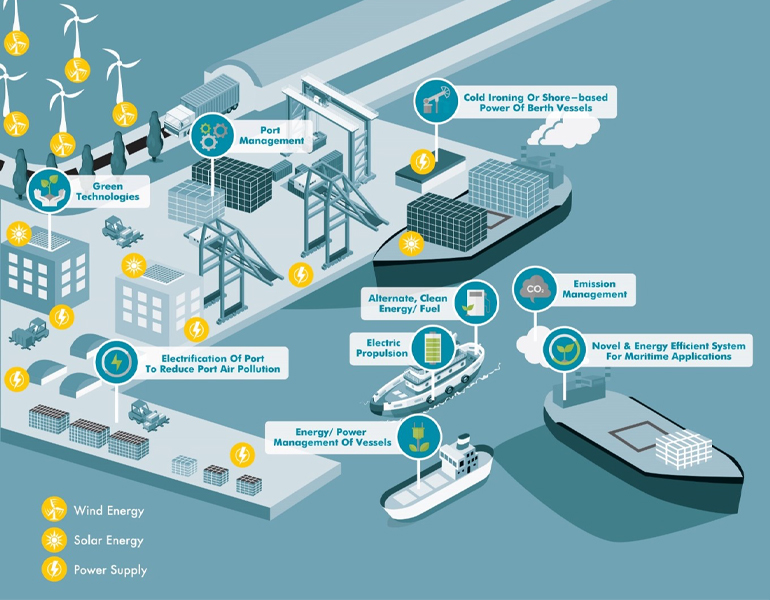A consortium consisting of Nanyang Technological University, Singapore (NTU Singapore), the American Bureau of Shipping (ABS), and the Ammonia Safety and Training Institute (ASTI) are collaborating on a study of the potential of ammonia for Singapore, exploring supply, bunkering, and safety challenges with the marine fuel.
Please reload the page
Do you want to read the whole article?
- Six editions per year
- Full access to all digital content
- The E-magazine Bioenergy international
- And more ...

Titled “Ammonia as a Marine Fuel in Singapore – Supply Chain, Bunker Safety, and Potential Issues“, the joint study will look at safety protocols and possible gaps in the supply chain of ammonia as a marine fuel, specifically bunkering for marine vessels.
Ammonia is a fuel with significant potential for marine applications and ABS is leading the way in understanding challenges in the safe design and operation of ammonia-fueled vessels. It is also clear that Singapore has the potential to play a critical role as a strategic downstream location to receive, store, consume or bunker ammonia. We are proud to be able to utilize our industry-leading experience with ammonia to contribute to understanding the opportunities and challenges presented by ammonia to the Port of Singapore, said Panos Koutsourakis, Director of Sustainability Strategy at the American Bureau of Shipping (ABS), a vessel classification society.
A research-intensive public university, Nanyang Technological University, Singapore (NTU Singapore) has various leading research centres such as the Nanyang Environment & Water Research Institute (NEWRI) and Energy Research Institute (ERI) with a strong resource sustainability focus.
This joint study is timely as it is aligned with NTU Singapore’s Maritime Energy & Sustainable Development (MESD) Centre of Excellence’s focus on alternative fuel research for the maritime industry, and ammonia is a key potential marine fuel. We look forward to working together with ABS and ASTI, in a collaboration supported by the Singapore Maritime Institute, to jointly deepen the understanding of various aspects of ammonia’s maritime applications. The research effort is in tune with Singapore’s long-term maritime decarbonization strategy, contributing to a more sustainable Maritime Singapore, said Professor Jasmine Lam Siu Lee, Director, Maritime Energy & Sustainable Development Centre of Excellence, NTU Singapore.
Established in 1987, US-headed ASTI is a non-profit training organization dedicated to making ammonia the “safest managed hazardous material in the world.” Bringing together leaders from industry and public safety organizations, ASTI provides safety management support through a wide range of industry training programs as well as assistance with facility-specific emergency response and action plans.
Ammonia is set to play an important role in helping decarbonize the maritime industry and ASTI is very pleased to be part of this study. We are committed to contributing as much experience and information as we can regarding ammonia safety to this important project, said Gary W. Smith, ASTI President, and CEO.
ExxonMobil, Hoegh LNG, MAN Energy Solutions Singapore, Jurong Port, PSA Singapore, and ITOCHU Group with their partners, are initial project partners, contributing technical information about marine fuel handling, vessel-to-vessel transfer, and bunkering in the Port of Singapore.
We view this study as closely aligned with our own strategy of cooperating with external partners to develop sustainable technologies and believe ammonia to be a very interesting candidate as a zero-carbon fuel. A suitable engine technology is, of course, key and MAN Energy Solutions already has a convincing track-record in developing engines running on alternative fuels. Indeed, we aim to deliver the first ammonia-fueled, two-stroke engine in 2024. We look forward to adding our expertise to this study to the benefit of Singapore, which is such a vital shipping hub, said Brian Østergaard Sørensen, VP and Head of R&D, Two-Stroke Business at MAN Energy Solutions Singapore.


